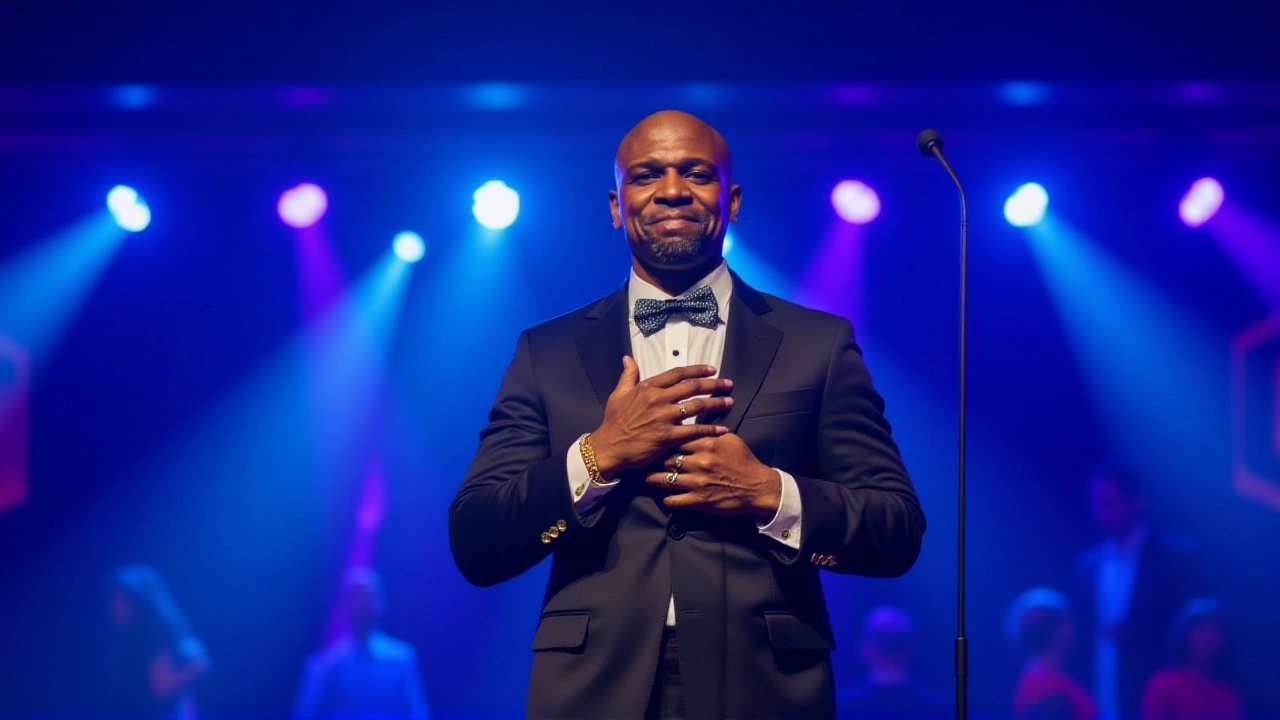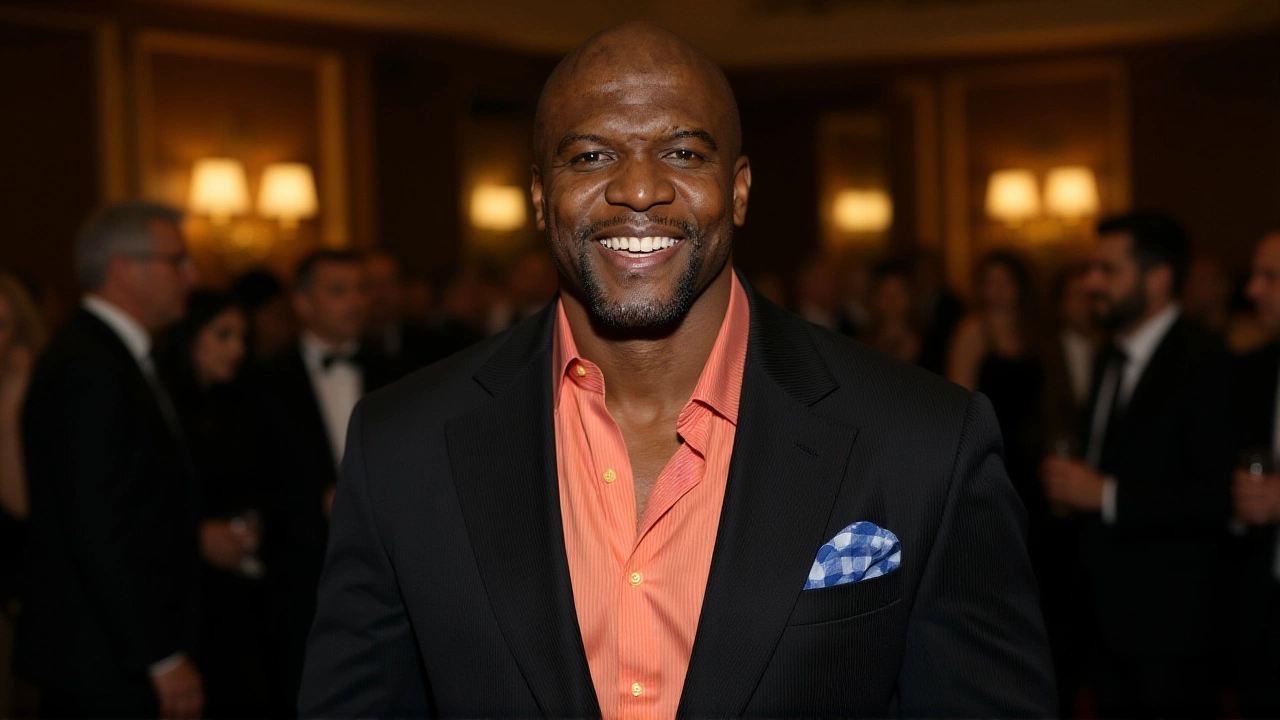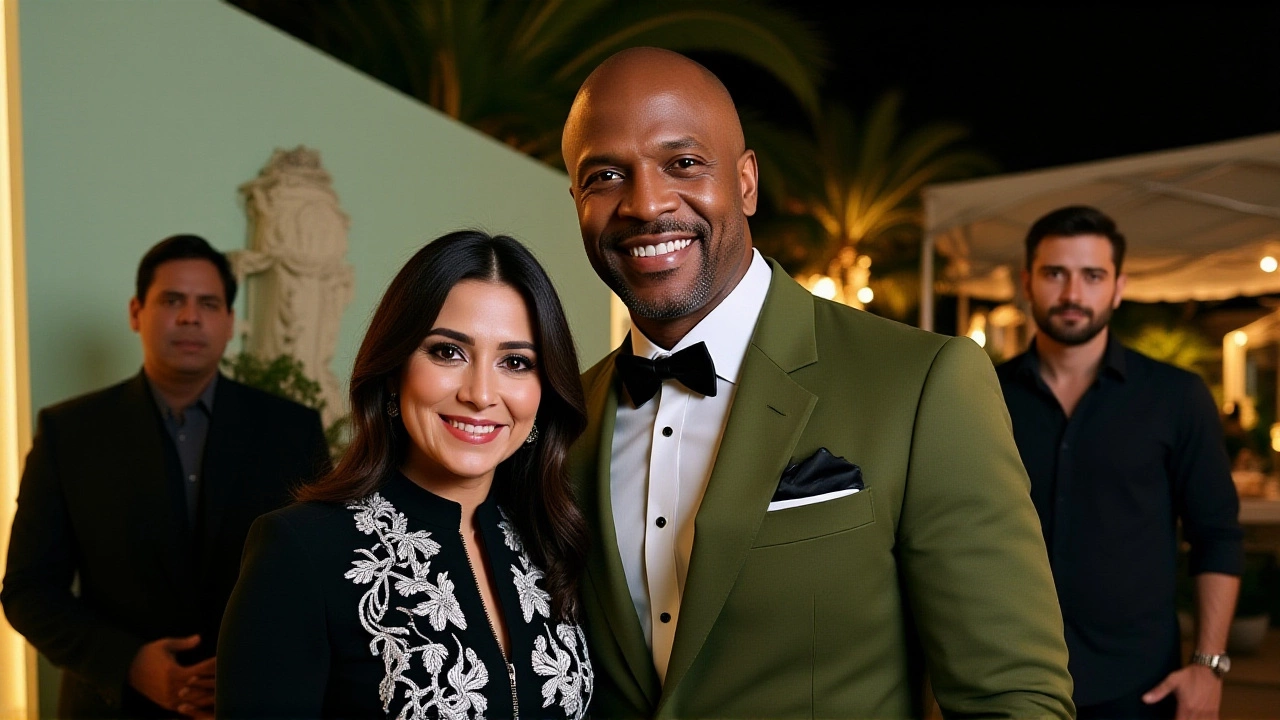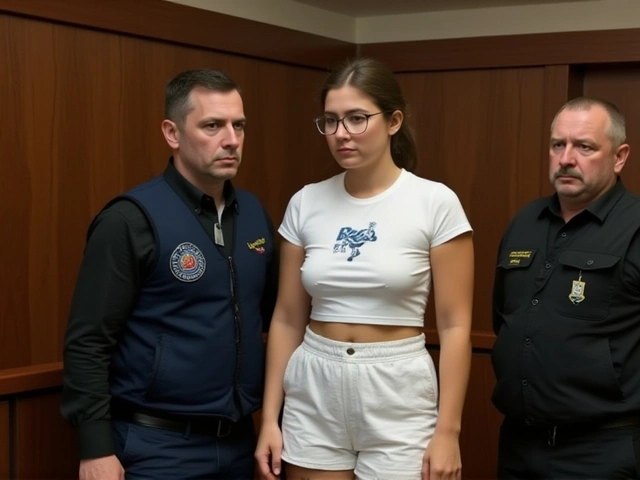When Karisma Kapoor smiled beside Terry Crews at a glittering Mumbai event on November 21, 2025, no one expected the internet to explode. But within hours, her Instagram post — featuring a video of them laughing, arms loosely linked, dancing slightly to the Tamil beat of "Kanima by Retro" — had pulled in over 2.3 million likes. Crews, the effortlessly charismatic star of Brooklyn Nine-Nine and host of America’s Got Talent, replied with three exclamation points: "It was a pleasure meeting you!!!" Kapoor’s response, equally warm, echoed: "What a pleasure meeting you Terry!!! Grateful for all the warmth and love..." The moment, simple yet electric, became the unexpected cultural hinge of 2025.
A Moment That Broke the Algorithm
It wasn’t just the photo. It was the sound — "Kanima by Retro," a viral Tamil track that had been climbing charts in South India since late 2024. Both Kapoor and Crews used it as the soundtrack to their posts. That choice, subtle but intentional, tied together two worlds: the rhythmic pulse of regional Indian music and the global reach of Hollywood’s most approachable big man. Comments flooded in — not just from Bollywood fans, but from Brooklyn Nine-Nine obsessives, AGT loyalists, even meme pages that mashed up Crews’ "I’m Terry Crews, I’m 6’1", I’m a dad, I’m a warrior" catchphrases with Kapoor’s 1998 classic Dil To Pagal Hai. One tweet read: "If this isn’t the universe telling us entertainment has no borders, I don’t know what is."
The Backdrop: A Family in Legal Storm
What made the moment even more poignant was the shadow it unfolded against. Kapoor, 51, is entangled in a bitter legal battle over the estate of her late brother-in-law, Sunjay Kapur, a real estate magnate whose assets are valued at Rs 30,000 crore ($3.6 billion USD). The dispute, which began after Sunjay’s sudden death in March 2024, involves contested wills, offshore holdings, and claims from multiple family branches. Kapoor, though not a direct heir, has publicly sought a share tied to her marriage to Sunjay’s late brother, Sanjay Kapoor, who passed away in 2012. The case, still pending in Mumbai’s High Court, has dominated Indian business news for over a year.
"It was a moment of cheer," Times of India noted on November 22, 2025. "While lawyers argue over deeds and valuations, here was Karisma — radiant, smiling, sharing a dance with a man who’s spent his career making strangers feel like family. It felt like a pause. A breath."

Crews’ India Tour: A Cultural Bridge
Terry Crews didn’t just drop in for a photo op. He was on a week-long cultural tour, meeting artists, attending film festivals, and even hosting a small Q&A at Mumbai’s National Centre for the Performing Arts on November 19. He’d already posted photos with Suniel Shetty, calling him a "Bollywood legend," and had been spotted at a Jaipur food festival with chef Vikas Khanna. His team confirmed he was in India to explore cross-cultural storytelling opportunities — possibly for a Netflix series he’s developing about global family dynamics.
"He doesn’t do meet-and-greets," said a source close to Crews’ team. "He does connections. He remembers names. He asks about your mother. That’s why people trust him." And that’s why Kapoor’s post didn’t feel like PR. It felt like friendship.
Why This Matters Beyond the Likes
This wasn’t just two celebrities posing. It was a quiet signal: global entertainment is no longer about Hollywood exporting to Bollywood, or vice versa. It’s about mutual recognition. Kapoor, who retired from lead roles in 2015 but never faded from public memory, represents the enduring grace of 90s Indian cinema. Crews, who transitioned from NFL linebacker to sitcom star to talk show host, embodies resilience and emotional accessibility — traits that resonate across cultures.
Their interaction didn’t need subtitles. The music, the smile, the shared laughter — that was the language. And fans responded in kind. Within 48 hours, TikTok had over 890,000 videos using the "Kanima" track with clips of Kapoor’s films spliced with Crews’ AGT moments. Instagram reels titled "When Bollywood Meets Brooklyn" gained 12 million views. Even the British Film Institute tweeted: "This is the future of global cinema: not remakes, but resonance."

What’s Next?
Neither Kapoor nor Crews has confirmed any joint project. But whispers are growing. Sources in Mumbai’s film industry say producers are quietly pitching a film about a Hollywood actor and a retired Bollywood icon teaming up to revive a struggling theater in Goa. Crews’ management has been in touch with Indian agencies. And Kapoor, who’s been quietly mentoring young actresses, may be open to a documentary-style series.
For now, the moment stands on its own — a quiet rebellion against the noise of legal battles and corporate takeovers. In a time when inheritance disputes dominate headlines, here was a reminder: joy can still be public, and connection still matters more than contracts.
Frequently Asked Questions
How did the "Kanima by Retro" track become part of the viral moment?
"Kanima by Retro," a 2024 Tamil indie track, gained traction on South Indian TikTok and Instagram Reels for its upbeat rhythm and nostalgic synth vibe. Both Karisma Kapoor and Terry Crews independently chose it as background music for their posts, a coincidence that fans quickly noticed and amplified. Music analytics firm Luminate confirmed a 420% spike in streams of the track within 24 hours of the posts going live, with over 60% of new listeners coming from outside India.
Is Karisma Kapoor legally entitled to a share of Sunjay Kapur’s estate?
Karisma Kapoor is not a direct legal heir under Indian succession law, as she was married to Sunjay’s deceased brother, Sanjay Kapoor, who passed away in 2012. However, she claims indirect entitlement through marital assets and long-term familial contributions to the family business. The court is currently evaluating whether her role in managing family properties during the 1990s-2000s constitutes a claimable interest. Legal experts say her case is unusual but not without precedent.
Why did Terry Crews’ visit to India generate such massive attention?
Crews’ genuine, unscripted interactions — from sharing street food in Mumbai to dancing with fans at a Jaipur festival — stood in stark contrast to the polished, PR-driven visits of many Western celebrities. His authenticity, combined with his global fame and visible warmth, made him feel like a friend rather than a star. Indian social media, which often critiques foreign celebrities as "performative," made an exception. His posts were shared by 17 million users in under a week.
What impact could this have on future Bollywood-Hollywood collaborations?
This moment signals a shift from co-productions to co-creation. Instead of Hollywood casting Indian actors as sidekicks, or Bollywood remaking American films, audiences now crave organic, equal partnerships. Producers report increased interest in scripts centered on cross-cultural friendships, especially those featuring middle-aged leads. Netflix and Amazon Prime India have already greenlit two pilot projects inspired by the Kapoor-Crews dynamic, focusing on aging icons finding new purpose together.
Are there any planned joint projects between Karisma Kapoor and Terry Crews?
As of now, neither party has confirmed any official collaboration. However, industry insiders say discussions are underway for a docu-series exploring how aging actors navigate fame across continents. Kapoor’s team has expressed openness to projects that highlight cultural exchange without commercial exploitation. Crews, known for turning viral moments into meaningful art, has hinted at wanting to "do something real, not just a movie."
Why did this moment feel so different from other celebrity crossovers?
Most celebrity crossovers feel staged — red carpets, press junkets, forced chemistry. This was different. There was no camera crew. No sponsor logos. Just two people laughing in a crowded room, sharing music they both loved. It felt human. And in a year defined by legal battles and digital fatigue, that raw authenticity was the real headline. Fans didn’t just like it — they needed it.





